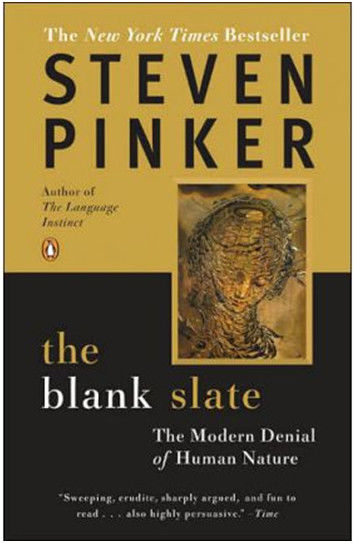
en
Удобнее в приложении:
iOS
·Android
The Blank Slate: The Modern Denial of Human Nature
Эта книга сейчас недоступна
925 бумажных страниц
Цитаты
- Samyam Aryalцитирует3 года назадIf an emotion is defined by behavior, then emotions certainly do differ across cultures. The Ifaluk react emotionally to a woman working in the taro gardens while menstruating or to a man entering a birthing house, and we do not. We react emotionally to someone shouting a racial epithet or raising the middle finger, but
as far as we know, the Ifaluk do not. But if an emotion is defined by mental mechanisms—what psychologists like Paul Ekman and Richard Lazarus call “affect programs” or “if-then formulas” (note the computational vocabulary)—we and the Ifaluk are not so different after all. - Samyam Aryalцитирует3 года назадThe philosophers Ron Mallon and Stephen Stich, inspired by Chomsky and other cognitive scientists, point out that the issue of whether to call Ifaluk song and Western anger the same emotion or different emotions is a quibble about the meaning of emotion words: whether they should be defined in terms of surface behavior or underlying mental computation.
- Samyam Aryalцитирует3 года назадFor example, Catherine Lutz wrote that the Ifaluk (a Micronesian people) do not experience our “anger” but instead undergo an experience they call song. Song is a state of dudgeon triggered by a moral infraction such as breaking a taboo or acting in a cocky manner. It licenses one to shun, frown at, threaten, or gossip about the offender, though not to attack him physically. The target of song experiences another emotion allegedly unknown to Westerners: metagu, a state of dread that impels him to appease the song-ful one by apologizing, paying a fine, or offering a gift.
fb2epub
Перетащите файлы сюда,
не более 5 за один раз

